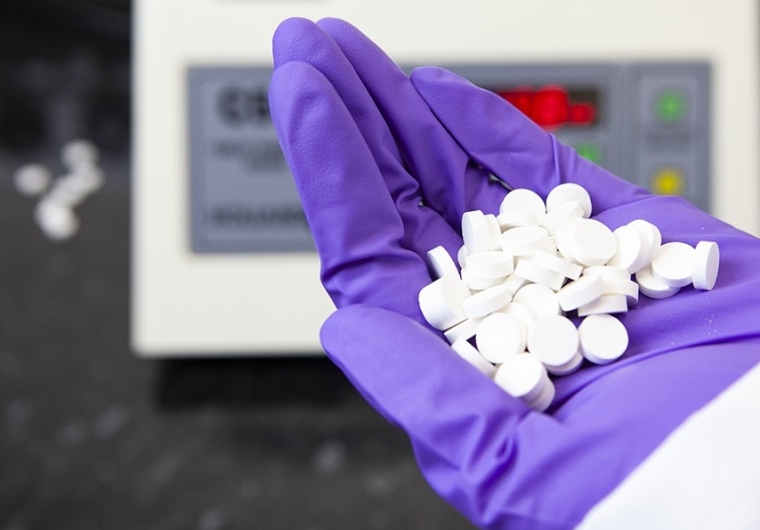The team at Merlin are experts in compaction science, we are typically involved in parallel during the drug development process. When formulation scientists are considering a tablet form of new medicine, we characterise the material properties of the API to help them understand the good and bad properties with respect to tabletting success.
Later on, formulation scientists send Merlin their prototype formulation, for us to help them understand their materials and processes better, to develop more efficient and reliable products. The data generated during compaction testing provides valuable information that will help decision making during scale-up.
Formulations are tested to identify potential scalability issues that may occur during mass production. Our scientists perform a range of tests from compaction to flow to help give the development team valuable information on how their powder performs when being compacted and to give suggestions on how to improve the formulation to have better tabletability.
Drug Development Phases
- Discovery and Development - Early research and development surrounding the chosen pharmaceutical compound.
- Preclinical Research – Further testing is conducted by the pharmaceutical developer, to further determine drug safety for human consumption.
- Clinical Research – Human testing confirms the new compound has all the required properties of a medicine. Merlin are not involved with clinical trials as we are development only, but our compaction science services run in parallel with the development phases of new tablets.
- Phase 1 – Safety and tolerability
- Phase II – Safety and efficacy
- Phase III – Trials involving a large number of patients
- Phase IV – Post-marketing surveillance.
- Approval – The final review of pharmaceutical data and documentation, to determine if a formulation is suitable for the purpose before mass distribution. Compaction data is often included to support the formulation development part of the submission.
Each stage of the drug development process is crucial to ensure end-users receive correctly performing medicines, which are formulated and manufactured cost-effectively, and safely.
1. London School of Hygiene and Tropical Medicine, 2020. Average cost of developing a new drug could be up to $1.5 billion less than pharmaceutical industry claims | LSHTM. [online] LSHTM. Available at: [Accessed 6 April 2021].


